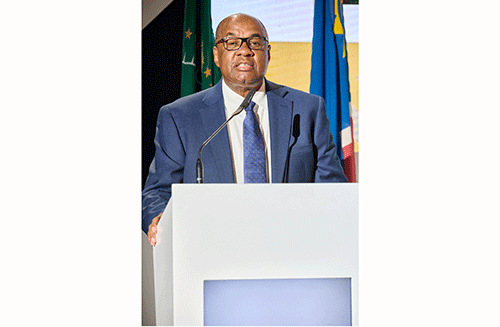Bank of Namibia (BoN) governor Johannes !Gawaxab this week stood firm that the bank prioritises purpose above profits. He made this remark during the launch of the central bank’s annual report for the 2022 financial year.
At the launch, !Gawaxab announced that the BoN will pay government a dividend of N$413.7 million. Coupled with higher average interest rates during 2022, the bank’s operating profit increased by 11.5% from N$584.2 million in 2021 to N$651.2 million in 2022.
“We cannot keep interest rates low in the face of high inflation to preserve low funding for the public sector or increase rates to generate profits. Such actions would be inappropriate, violate the mandate of the bank, and destabilise the economy,” said !Gawaxab.
During the course of the period under review, the bank pursued a tighter monetary policy stance, increasing its repo rate by a total of 300 basis points to close the year at 6.75%. The monetary policy stance adopted in 2022 was aimed at anchoring inflation expectations and safeguarding the one-to-one link to the South African Rand, while providing support to the domestic economy.
The repo rate was increased further to 7.00% at the February 2023 Monetary Policy Committee (MPC) meeting.
Therefore, the reserves available for distribution increased year-on-year from N$672.7 million in 2021 to N$772.6 million in 2022.
“This makes it possible for the bank to declare a dividend that will be put to good use in much-needed areas as we rewire the country and bolster resilience,” said the governor.
Going forward, he noted domestic growth is estimated to moderate downwards to 3% and 2.9% in 2023 and 2024, respectively, largely due to weaker global demand.
According to him, some of the key risks to the domestic outlook include monetary policy tightening globally, water supply interruptions, high costs of key import items, effects of climate change, and potential spillover of electricity cuts from South Africa to Namibia.


